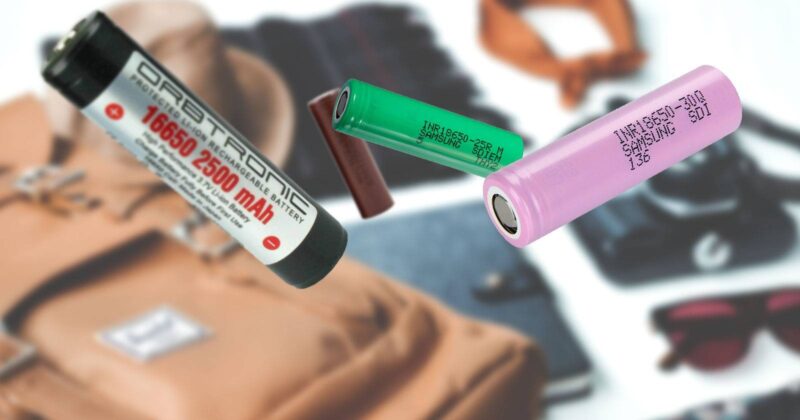Relapse can knock the wind out of you, making all those months or years of hard-fought recovery feel wasted. But take it from the experts – backslides happen even to the best of the best.
According to statistics, 40-60% of people in recovery tend to relapse within the first year. This is evidence enough that the winding road towards sobriety often loops back on itself. Therefore, the key isn’t beating yourself up or succumbing to shame when you fall off the wagon.
Instead, you’re better off leaning on actionable strategies to get your life back to where it used to be, or pretty close. This guide will share some of these strategies that can go a long way towards getting you back on your feet.
1. Spot your pitfalls

Triggers can pop up when you least expect them. Maybe certain friends or old hangouts summon that little voice telling you ‘just one drink’ or ‘one hit won’t hurt.’
This isn’t unique to you. Everyone has their pitfalls – people, places, emotions – that can unravel recovery if they’re not careful. The key is figuring out what exactly lights that spark for you. Is it anxiety that creeps in when you’re alone at night? Feeling left out around pals living it up at the bar?
Whatever it may be, shine a spotlight on those pitfalls before they trip you up. When that fratty college buddy calls enticing you to one last rager, have an escape plan. ‘Thanks man, but I have an early day, so I’ll take a raincheck.’
2. Practice self-care
After a long day, how nice does a nutritious home-cooked meal sound? Comfort foods like mom’s mac and cheese or a healthy balanced meal can do wonders for stress.
But food’s not all there is to it. There’s also sleep. This is especially important given that it’s one of the critical facets of your life that suffers the most when you’re on drugs and when you’re cleaning up.
According to a report by the Substance Abuse and Mental Health Services Administration (SAMHSA), 25-72% of people battling alcohol use disorder have trouble sleeping. These sleep difficulties can stretch for weeks on end, months, or even years.
In the same breath, people recovering from cannabis use can suffer from sleep disorders for days or weeks since first kicking the habit. Up to 3/4 of those recovering from cocaine use also report sleeping difficulties.
Knowing these facts, it’s a great idea to prioritize activities that increase your odds of having a good night’s sleep. That includes setting a consistent bedtime, sleeping in ideal conditions, and any other tips that work for you.
Top it off with activities that hit your ‘bliss points’ like exercise, hikes, games night or reading that novel that’s been gathering dust. Little steps towards self-care make a big difference long-term.
3. Call in the experts
If self-help just isn’t cutting it, don’t hesitate to seek professional reinforcements. Consider booking more one-on-one sessions with a trusted therapist or attending intensive outpatient treatment. Or if you’re new to the recovery scene altogether, explore options like detox centers, 30-day rehabs and sober living homes to establish a routine.
Medication is also a powerful resource for quelling nasty withdrawal symptoms or therapy-resistant cases. Mood stabilizers, anti-anxiety meds and more can get brain chemistry back on track.
Getting the right professionals on your case can make all the difference in your recovery journey. If you’re curious how, follow this link or any other you prefer to find out.
4. Gather the support of those dear to you
The moment you stumble, reach out to your trusty support crew. Vent about what happened, process the frustration, and most importantly – discuss game plans so it doesn’t happen again.
Perhaps they would recommend an additional support group meeting or introduce new coping tricks. An outside perspective can get you out of self-blame mode and back on track.
Another good support system is your family. A study published in the Frontiers Journal concluded that family intervention goes a long way in reducing the likelihood of relapse when you’re undergoing detoxification.
With that in mind, lean in on your family for strength and support during these difficult times. This may go a long way towards aiding your recovery. Also, surround yourself with inspiring people who lift you up, not bring you down.
Tell your friends exactly what you need from them, even little things like phone check-ins. This may go a long way. And who knows? You might even become someone else’s support system one day and pay the positivity forward!
5. Learn your early warning signs

Everyone has their ‘etlls’ when temptation comes knocking. Maybe you notice yourself withdrawing from loved ones, missing support group meetings, or blowing off healthy hobbies.
These subtle signs are unique for everyone, so take a second to reflect – what changes in your mood or habits tend to precede slippery slopes? When you know what to watch for, you can catch yourself before going full-blown off the rails.
Stay vigilant day-to-day and clue your support crew into your common tells. So, when your sponsor senses you isolating or your therapist notices mixed signals, they can gently say, ‘Hey friend, everything ok?’
Early warnings spotted lead to early course-corrects. That self-awareness and quick catch-up can keep you on solid road.
6. Swap bad coping for good
Next time you catch yourself dwelling on the past or craving your former fixes, gently shift gears. Make a go-to list to disrupt unhealthy patterns: call a supportive friend, immerse yourself in a hobby, volunteer at that animal shelter, or get lost in an intriguing novel. Having a menu of feel-good options helps to replace bad coping habits with good ones.
And don’t underestimate simple pleasures. How soothing does a cup of tea sound while cozied up with your favorite movie? Or getting much-needed air on an evening stroll around the neighborhood?
Lean into little things that lift your spirits. Over time, those healthy backups will become second nature when you need them most. Pretty soon, you’ll have swapped out those destructive behaviors for constructive ones.
7. Peace through mindfulness
Meditation and mindfulness can go a long way when you’re recovering from substance use disorder. According to a study by West Virginia University in 2023, patients who participate in mindful meditation while on medication for opioid use disorder were likelier to complete their programs and with lower risk of relapse.
So, don’t underestimate those moments of zen and calm. Just five minutes daily can work wonders. Find a peaceful spot, set a timer, and focus on your senses—the warmth of sunlight on your skin, the gentle breaths, and the soothing textures around you.
You can also infuse mindfulness into everyday tasks. While washing dishes, pay attention to the sudsy water and clinking plates instead of spiraling into what-ifs.
Tough emotions may still arise, but mindful moments can help process them with clarity, not reactionary habits. Over time, those mindful mindsets stretch beyond the meditation pillow into everyday life.
8. Stumbles happen – dust yourself off
Recovery is a winding path, not a straight line. Relapses and rough patches will happen, no matter how vigilant you are. As a matter of fact, many addiction recovery specialists consider relapse as part of the healing process.
In those moments, speak to yourself as you would a close friend – with compassion. Avoid words like “should” and “weak” which only shame you backward. You’re still the same strong person who made incredible progress. This stumble does not erase your hard work.
Next, dig into what triggered this setback so you can avoid similar pitfalls. That tricky “one last drink” rationale? Making amends also restores self-trust. Finally, dust yourself off and realign with your vision for wellness. Everyone trips sometimes, but the journey continues.
9. Adjust and readjust your playbook

Start by pinpointing exactly what triggered the slip, no matter how small it seems. Too much free time? Stress from a bad day? An argument with friends?
Once you’ve ID’d potential pitfalls, huddle with your support team to adjust strategies. Perhaps you block off weekend hours to avoid too much solo downtime or learn calming routines to de-stress after long workdays. If friends tend to enable drinking, limit time with them.
Don’t be afraid to tweak regularly either. What works one month might need some tweaking the next, so, adjust accordingly. Keep in mind that recovery is a process of constant assessment and refinement.
10. Celebrate how far you’ve come
When you stumble, it’s easy to forget just how far you’ve traveled. Doubts flood in – “Have I lost everything?” “Can I really do this?” Quiet that inner critic and revisit your highlights reel.
Visualize your early withdrawal days and how impossible recovery seemed. Yet here you are, not just surviving but thriving through skill-building, self-care and community despite the odds. Pat yourself on the back for each goal met – big or small.
Print and frame motivational quotes that uplift or certificates from completed programs. Make a photo album of cherished memories gained in sobriety, like reconnecting with family. These tangible touchstones can make it easier to recall progress when confidence wavers.
Everyone repeats steps as they learn to walk. But with patience and celebrating each milestone, forward momentum regains steam. With such an attitude and mindset, your stumble can merely become a stepping stone towards future success.
11. The past informs the present
Sometimes addiction stems from an underlying need for relief. Traumas, depression, anxiety – some vices provide an escape when these issues become overwhelming. But bandages only work for so long before the root cause needs tending.
Reflect on when substance abuse habits began. Were you self-medicating to numb difficult emotions? Maybe to cope with past situations? Pinpointing the origin clarifies the “why” so you can heal holistically. Consider opening up to a therapist or sponsor for guidance.
Addressing mental health struggles and past pains may seem impossible from a distance, but taking that first step can be liberating. Sorting through baggage now can alleviate a lot of hardship down the road.
While the road ahead takes work, you’ll look back with pride at having overcome immense inner and outer challenges.
12. Pop bottles at every mile marker
Did you make it a whole week trigger-free? Pop some sparkling cider and toast your willpower. Finally reconnect with an estranged friend or family member? Plan a nice dinner out to mark mending fences.
Acknowledging milestones (even tiny ones) throughout this winding journey creates much-needed sparks of joy while also cementing important new habits. Make a ritual of it. Buy yourself small treats, take mini weekend getaways, proudly announce progress to your support squad. However you see fit.
Big picture goals feel less intimidating when partitioned into bite-sized wins. And regularly reveling in your own resilience trains your brain to recall positives, not just focus on slippery slopes.
13. Soak up stories of hope

When that familiar frustration or shame creeps in, soak up inspiration from the success stories around you.
- Dig into memoirs of those further along the recovery road.
- Connect with local support groups to witness fellow fighters in the flesh.
- Join online forums that allow you to chat freely and without judgment.
Feeding your mind uplifting content can go a long way towards crowding out self-criticism and despair. And it can powerfully demonstrate that anyone with the willpower can rewrite their narratives after addiction – including you.
Start journaling about your experience or even anonymously share words of hope with newcomers. Soon, you may pay that motivation forward by actively uplifting others in their early days.
In closing
Holistically addressing a relapse requires attacking from multiple angles: physical, mental, emotional and social. But know that each effort, however small, stacks upon the previous to build recovery resilience over time.
You’ve seen some great tips to guide you through the journey. Use them. Reach out to pros in the field for help where you feel lost. Also keep in mind that what matters most is maintaining compassion towards yourself and your limitations while accepting support from loved ones.
With balanced self-care along this winding road, you’ll rediscover your greatest healer to have always been within you all along – yourself.








